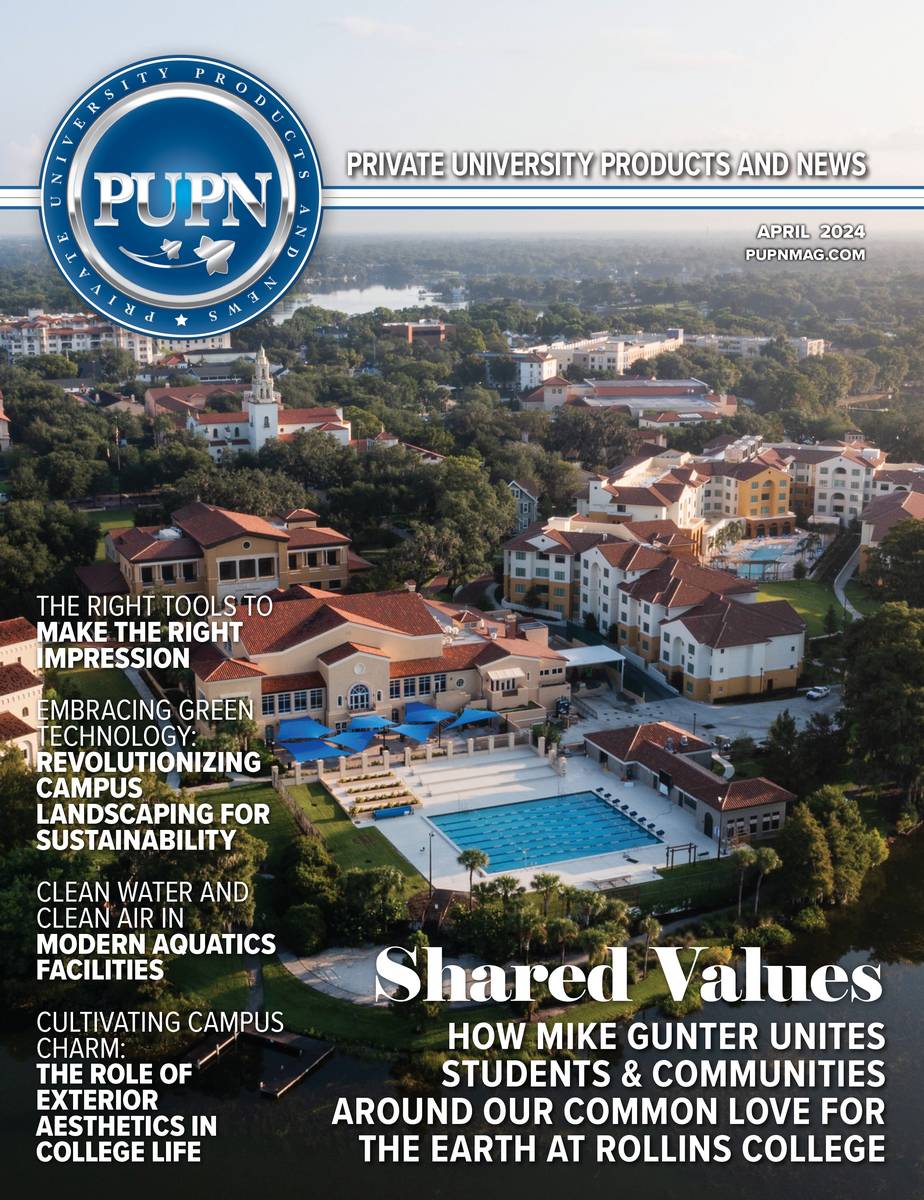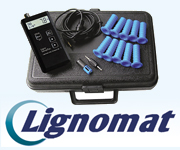Case in point: segmental permeable paving projects that use genuine clay pavers. Pathways of clay pavers, some emblazoned with the names of contributors to long-ago fundraising campaigns, are a design staple on college campuses across the United States.
The benefits include color that goes all the way through and looks the same forever- including when cleaned, as they will look the same way a century from now as the day they were installed-and modern-day engineering standards that require today’s genuine clay pavers to be durable enough for vehicular traffic. They are also precisely sized to make installation easier.
What’s relatively new in the marketplace are genuine clay permeable pavers that are virtually indistinguishable from clay paver installations that have been put into place for decades.
New permeable clay pavers differ slightly from conventional clay pavers. They’re built with spacers that allow them to be installed slightly farther apart. That modification allows rainwater to seep in between them to a system of precisely layered aggregates underneath. The water is held there, until it either seeps into the ground, where it’s naturally filtered, or is captured to be redirected, perhaps to a rain garden.
Such Installations Have Three Main Benefits
Because rainwater is treated in place, it means that you won’t have to tie into municipal storm systems and pay the resulting fees. You also may not have to have retention ponds or bioswales, both of which swallow up precious real estate, which leaves more space, which is a plus on landlocked campuses. Additionally, because the pavers look virtually identical to what may already be in place, there won’t be a visually jarring transition from old to new.
The Two Questions – Answered
Does it work? Or more properly, how much rain can a properly installed permeable clay paver project take? The answer: 720 inches – or approximately 60 feet – per hour. That rate of absorption came from an independent test conducted by Gilmore & Associates, a full-service engineering and consulting services firm with six offices serving Eastern Pennsylvania.
The test was carried out under a standard developed by ASTM International – formerly the American Society of Testing and Materials – the organization that develops and publishes voluntary consensus technical standards for a wide range of materials and products worldwide. The standard was published in October 2013 as C1781: The Standard Test Method for Surface Infiltration Rate of Permeable Unit Pavement Systems.
Test Subject: University of Pennsylvania
The test subject was on a college campus – the University of Pennsylvania campus in Philadelphia, PA. The area was within a walkway on the north side of Franklin Field, near the Dunning Coaches’ Center. The walkway had been in place for approximately seven months.
The test used a steel tube, open on both ends, 12 inches in diameter and 10 inches tall. The tube was placed on a clay permeable paver walkway that used #89 stone infill over AASHTO No. 57 stone. The ring was placed so that the minimum, or most conservative, infiltration area was exposed at the cylinder base.
The perimeter was then sealed to the brick surface with plumbers’ putty. Water was added to the ring to a measured depth and the time was recorded for the water to infiltrate below the clay paver surface.
The measurements found that in six successive tests, four inches of water flowed through the pavers in 20 seconds. Based on those calculations, it was estimated that the permeable clay paver installation would accept 720 inches of water per hour. And the tests found that the water absorption into a clay permeable paver system is much greater than it is with undisturbed soil nearby. That’s not surprising, given that undisturbed soil doesn’t come with a carefully installed aggregate base that has natural voids into which rainwater can enter and be stored.
The existence of such engineering tests – and the standard that they must adhere to – is not surprising. The new standard has come about at a time when municipalities are increasingly requiring developers to treat stormwater on site – and asking for proof that proposed permeable systems actually do work.
“We are seeing more provincial, state and local permeable pavement specifications require surface infiltration tests to accept new permeable pavements and to evaluate their in-service infiltration for determining surface cleaning,” says Craig Walloch, chair of ASTM Subcommittee C 15.04 on Research that helped develop the standard. “Now they have a standard with specific guidance for testing unit paving.
The Test – from Mother Nature
Years before engineering standards were developed for clay permeable paver installations, the installations themselves were tested by Mother Nature.
Examples include the following:
1) Significant tropical storms and one hurricane over two successive years poured torrents on an installation of clay permeable pavers in Annapolis, Maryland, which were quickly dispersed and managed. 2) Shortly after its installation, a clay permeable paver installation managed a 100-year flood on a college campus in Raleigh, NC.
3) An award-winning park in Palmetto, Florida, included a hardscape that used clay permeable pavers for plazas and sidewalks. It was designed to lessen storm-water runoff into a nearby river during ordinary rainfalls. A tropical storm wasn’t in the plans but happened by anyway.
The system worked flawlessly. For reasons ranging from aesthetics – to durability – to saving valuable real estate, clay permeable pavers do indeed pass the test, with flying colors.
Photography courtesy University of Pennsylvania by Scott Spitzer and Pine Hall Brick










